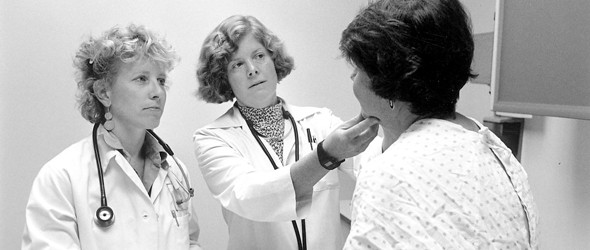
Have you been struggling with access to health insurance for the loss of your job
[?you fear that your COBRA coverage may lack soon? Intimidated by the cost of obtaining a continuous policy of insurance under HIPAA
Fear not - with the deployment of new health insurance exchanges or markets in under the affordable care Act, you now have guaranteed access to health insurance regardless of health conditions or be unemployed, and may even be eligible for government tax credits to help pay the cost of insurance
the current open enrollment for health insurance through the new online health insurance exchange (think: a market website to compare policies and the purchase of health insurance.) began on 1 October and continues until March 31 (those who buy on December 15 will have coverage that takes effect January 1).
The next open enrollment period will be held on October 1 to December 14, 2014.
The main change in purchasing health insurance through an exchange
Unlike the previous world of individual health insurance, the affordable care Act requires health insurance offered by the exchange to be available regardless of health conditions.
insurance coverage can not be denied for health conditions, limited due to pre-existing conditions, or canceled in the future due to a change in health.
instead, everyone should have access to the same insurance policies - regardless of their actual state of health - and prices can be modified based solely on these factors:
- Age;
- the size of the family (higher cost to cover more people);
- geographical area (prices are adjusted to reflect the cost of living and the cost of care in the region); and
- Smoking (smokers can be charged, if the state chooses to allow it).
The quality of coverage health insurance
The quality of coverage will vary depending on the type of plan purchased, and the Affordable Care Act defines four types of coverage : plans "Bronze" (actuarially covering an average of 60% of the costs of health care), the silver plans (70% of costs), Gold plans (80% of costs), and platinum plans (0 % costs).
to the age of 30, or those for which coverage would cost more than 8% of their income, an additional "catastrophic" type of coverage is available, with lower levels of coverage, but also lower premiums.
The new health insurance rules mean that even those who are unemployed and do not have access to health insurance through an employer are able to get coverage, regardless of the fact that they are unemployed, and even if they have health conditions
tax credit premium assistance
also, if they earn at least an amount equal to the federal level of poverty - . currently $ 11.40 for an individual, $ 15,510 for a married couple, or $ 23.550 for a family of four - they may be eligible for premium assistance tax credit, which also applies to 45.960 higher incomes than $ for individuals, $ 62,040 for married couples and $ 94,0 for a family of four (these thresholds are indexed annually for inflation and will be slightly higher in 2014).
Those whose income is below certain thresholds may be eligible for health insurance through Medicaid, although eligibility varies by state.
to estimate the amount of the tax credit on the premiums you would be eligible for, you can consult the credit calculator on HealthcareACT.com estimation tool, or to obtain a more accurate quote based on your income and the exact situation, including health insurance costs in your state, go through the registration process Healthcare.gov to see what your cost of health insurance would
If your lower income for the year -. partly due to unemployment itself - you may find yourself eligible for a major credit.
And in particular, unlike many other tax credits, the premium assistance tax credit is not only claimed when you file your tax return at the end of the year. Instead, it is actually advanced to your health insurance company to help pay your premiums if you buy through the market.
For example, if your tax credit on premiums was $ 0 per month ($ 2,400 per year) and the insurance costs $ 300 a month, you will simply pay the difference - $ 100 per month -. for your first health insurance
However, if it proves that you credited too much or too little credit throughout the year, payments under over- or will be reconciled when you file income. This means you may have to pay part of the return of credit if your income is found to be higher because you get a job later in the year (while finding a job is great news, it can increase your marginal tax rate slightly as you start earning an income and thus gradually your tax credit on premiums)
the bottom line is simply this :. thanks to the Affordable Care Act, you are now able to obtain health insurance, even if you are unemployed, with a tax credit on premiums to help cover the cost of insurance (and credit may be higher while low income due to unemployment itself).
Are you unemployed and struggling with a lack of health insurance? Does the new guarantee of access to health insurance means you are now able to get coverage for the first time?

0 Komentar